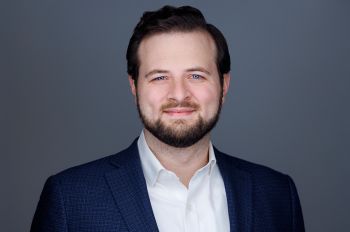The A2J Author Course Project enters its second phase
Proposals will be accepted until October 15
October 15 is the deadline for proposals from law school faculty interested in participating in the second phase of the Access to Justice Clinical Course Project (A2J Author Course Project), an innovative nationwide clinical course initiative aimed at lowering barriers to justice for self-represented litigants.
In 2012, IIT Chicago-Kent College of Law's Center for Access to Justice & Technology (CAJT®), the Center for Computer-Assisted Legal Instruction (CALI®), and Idaho Legal Aid Services launched what was then called the "A2J Clinical Project." Based on the Justice & Technology Practicum, an IIT Chicago-Kent College of Law course taught by Professor Ronald W. Staudt, the project was designed to introduce law students to the skills required by a 21st century law office, and to produce A2J Guided Interviews® and other technical resources that statewide legal aid organizations can use to increase access to justice for low-income people.
According to Professor Staudt, who is also the director of the Center for Access to Justice & Technology at IIT Chicago-Kent, there are only a handful of other law schools around the country that offer similar programs.
Columbia Law School, Concordia University School of Law, CUNY School of Law, Georgetown University Law Center, UNC School of Law, and the University of Miami School of Law were selected in the first round to create a new clinical course or modify a current one that teaches A2JAuthor® or other software tools to develop self-help resources for legal aid organizations. Three courses began in the fall semester of 2013. The remaining three schools offered courses in the spring semester of 2014. In addition to producing tools for self-represented litigants, courses offered as part of the project provided students with a fresh perspective on legal education.
William Mueller, a student in the University of Miami's Health Rights Clinic, described his experience as "definitely more engaging and interactive than a typical class."
"The Clinical Course Project involved utilizing a number of different intellectual faculties that aren't really needed during a typical law school course [such as] heightened logic and reasoning, engaging the community, [and] teamwork," said Mueller, who added that the course "really demonstrated a different application of law."
The first phase of the project was successfully completed in the summer of 2014. It surpassed its mandates by doubling the required number of participating schools. Development has begun on a course kit, which is comprised of course materials generated from the participating schools, including sample syllabi, course models, assignments, and teachers' notes. The course kit will be made available to law schools offering A2J Clinical Courses. The success of the program has led to heightened interest in the next round, now called the "A2J Author Course Project."
"There is a tremendous amount of interest nationally in leveraging law students and technology to help address the legal needs of the poor and middle class," explained Professor Staudt. "This CALI initiative resonates with the emergence of law school incubators, ABA task forces on justice, and AALS and Clinical Section initiatives."
Proposals for the new round are being accepted, and interested faculty members may submit proposals until October 15, 2014. Six schools will be chosen, and selected faculty will be notified in December. Information about the request for proposals, including links to the flyer and background sheet, can be found at spotlight.cali.org/2014/09/16/request-for-proposals-a2j-author-course-project.
Founded in 1888, IIT Chicago-Kent College of Law is the law school of Illinois Institute of Technology, also known as Illinois Tech, a private, technology-focused, research university offering undergraduate and graduate degrees in engineering, science, architecture, business, design, human sciences, applied technology, and law.
The Center for Access to Justice & Technology was established at IIT Chicago-Kent to make justice more accessible to the public by promoting the use of the Internet in the teaching, practice, and public access to the law. The Center conducts research, builds software tools, teaches classes and supports faculty, staff and student projects on access to justice and technology.



